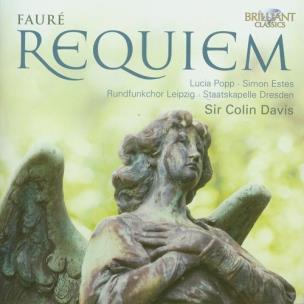- Regulamin
- Koszty dostawy
- Kontakt
- Dziś w ofercie 236 091 produktów
KSIĄŻKI
- Albumy
- Beletrystyka
- Biografie
- Dla dzieci i młodzieży
- Edukacja
- Ekonomia i biznes
- Ezoteryka
- Historia
- Informatyka
- Kalendarze
- Komiksy
- Kryminał i sensacja
- Kultura i sztuka
- Literatura faktu
- Literatura kobieca
- Literatura piękna
- Medycyna
- Nauka języków obcych
- Nauki humanistyczne
- Nauki przyrodnicze
- Nauki ścisłe
- Podręczniki
- Poradniki
- Prawo i administracja
- Przewodniki i podróże
- Psychologia
- Religia
- Sport
- Technika
- Zdrowie i uroda
ZABAWKI
- Artykuły dla niemowląt
- Bączki
- Bujaki i skoczki
- Ciągnij / pchaj
- Dla niemowlaka
- Grzechotki i gryzaki
- Karuzele i pozytywki
- Maty i centra zabaw
- Projektory i lampki
- Sortery i piramidki
- Zabawki
- Edukacyjne i kreatywne
- Figurki
- Klocki
- Lalki
- Pojazdy
- Pluszaki i maskotki
- Sport i rekreacja
- Zabawa w dom
- Zabawki drewniane
- Puzzle
- Do 200 elementów
- 201-500 elementów
- 501-1000 elementów
- Ponad 1000 elementów
- Puzzle 3D
ART. PAP
- Artykuły biurowe
- Artykuły piśmiennicze
- Bloczki i kartki samoprzylepne
- Dziurkacze
- Kalkulatory
- Nożyczki i nożyki
- Skoroszyty
- Teczki
- Wizytowniki
- Zszywacze
- Artykuły szkolne
- Akcesoria szkolne
- Modelowanie
- Notatniki i zeszyty
- Piórniki
- Plecaki i torby
- Pojemniki na śniadanie
- Pomoce naukowe
- Przybory matematyczne
- Przybory rysunkowe
- Upominki i gadżety
- Akcesoria do książek
- Artykuły balowe
- Breloki i zawieszki
- Drobiazgi, różności
- Kubki
- Oferta Świąteczna
- Papeteria, kartki i naklejki
- Skarpetki Many Mornings
- Upominki
GRY
MULTIMEDIA
- Audiobooki
- Beletrystyka
- Biografie i wspomnienia
- Dla dzieci i młodzieży
- Fantastyka
- Filozofia i religia
- Historia
- Literatura faktu i reportaż
- Poradniki
- Sensacja i kryminał
- Filmy DVD/BD
- Animowane
- Biograficzne
- Fantasy
- Horrory
- Komedie
- Romanse
- Science Fiction
- Sensacyjne / kino akcji
- Thrillery
- Muzyka CD
- Alternatywna
- Blues
- Dla dzieci
- Jazz
- Klasyczna
- Piosenka aktorska i poetycka
- Pop
- Rock
- Świąteczna i kolędy
- Akcesoria GSM
- Głośniki
- Kable i adaptery
- Klawiatury
- Myszy
- Słuchawki
PROMOCJE
ZDROWIE
LEGO

Fauré: Requiem
Wydawca:
Brilliant Classics
ISBN:
5028421939476
EAN:
5028421939476
oprawa:
Plastikowa
format:
14.0x12.0cm
język:
angielski
rok wydania:
2010
(0) Sprawdź recenzje
Opis produktu
Zasady bezpieczeństwa
Gabriel Faure composed his requiem in 1887/8 after a period of intense personal grief. His father had died in 1885, and his mother died two years later. The early version was scored for violas, cellos, organ, harp and timpani.
A later version performed in 1888 had horns and trumpets added. A further development, he added a Libera me, and he made further additions to the orchestration in 1894. It was yet another revision in 1895 that saw the Reqiuem take the form that we know it best today -- with full orchestra.
Compared to the requiems by Mozart, Cherubini, Berlioz and Verdi, Faure's masterpiece is predominantly a serene work. That isn't to say it is without drama, but overall the work has a humanist acknowledgement of suffering rather than an overtly Christian view. The Wagnerian harmonies are restrained by sombre colourings and ancient church modes.
The Requiem is an intensely personal utterance. Charles Koechlin said 'thanks to the overflowing of his heart, Faure has created an aeterna requiem of serene gentleness and consoling hope'
Other information:
- Recording made by Philips in 1985
- Booklet notes
- 'Among recordings of the 'received' text of Fauré's Requiem, Davis's ranks very high indeed, for the subtle beauty of its choral singing, for the sober richness of its orchestral sound and for its marvellously atmospheric acoustic. All these qualities are intensified by CD, and the virtues of Davis's reading are as a consequence still more strongly projected: its solemnity, its firmly controlled gravity of tread, the lovely refinement of its dynamic shadings' Gramophone July 1986
CENA:
21,12
zł
Cena detaliczna:
24,90 zł
15%
rabatu
Najniższa cena z ostatnich 30 dni: 21,17 zł
Produkt niedostępny
Uwaga!!!
Ten produkt jest zapowiedzią. Realizacja Twojego zamówienia ulegnie przez to wydłużeniu do czasu premiery tej pozycji. Czy chcesz dodać ten produkt do koszyka?


Wybierz wariant produktu
